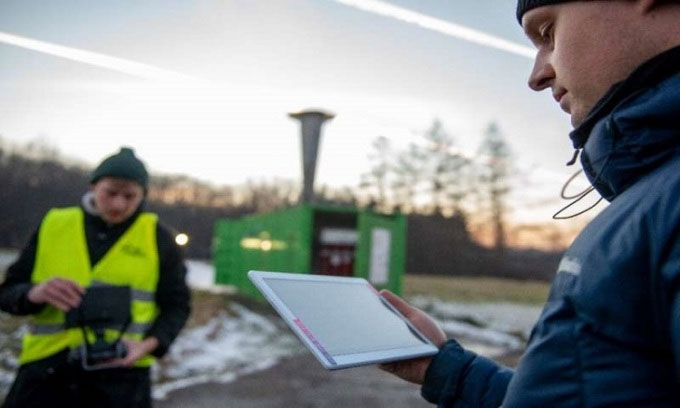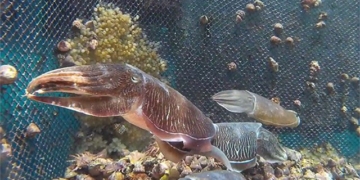In the battle against smog, a group of scientists is testing a “cannon” device that uses sound waves to push harmful particles high into the air, helping residents breathe more easily.
Installed atop a metal container, the experimental device features a large inverted cone that produces loud sounds every 6 seconds. The goal is to disperse the smog over Kalwaria Zebrzydowska. Like many towns and cities in Poland, this area faces significant smog issues each winter when residents burn heating systems that cause heavy pollution. As the sun sets, smog spreads throughout the town while residential chimneys emit thick smoke.

Researchers testing the anti-smog device. (Photo: AFP)
Poland is one of the most polluted countries, exceeding European standards during the heaviest smog periods of the year. By generating sound waves, researchers claim that the “cannon” helps reduce the concentration of harmful PM2.5 and PM10 particles in the air of the town.
“We use a vertical shock wave created by burning acetylene and air,” said Dominik Grybos from the Academy of Mining and Metallurgy in Krakow, one of the inventors of the system. “The wave pushes the polluted air higher.”
The harmful particles are pushed up several hundred meters, making them harmless to residents. “We have observed that using the cannon for 0.5 to 1 hour can reduce pollution by 15 to 30% within a radius of 2 to 3 km from the cannon’s location,” Grybos noted. According to him, the effect lasts for 1 to 3 hours.
The research team is working to calculate the necessary frequency for firing the cannon, as well as the duration of the entire process. The estimated cost of operation is around $250 to $375 per hour. Grybos hopes the invention can be used in commercial applications, especially in Poland.
Local residents are very supportive of the invention idea. “The smog here is very heavy. If this invention can help, let them test it,” said Jolanta Walkowicz, a 43-year-old accountant in Kalwaria Zebrzydowska. “We can hardly hear the sound. It’s like fireworks fading away.”


















































